45 is sodium salt on food labels
PDF Controlling Sodium and Reading Labels - Veterans Affairs • Choose foods with 140 mg sodium or less per serving. • Avoid food with more than 300 mg of sodium per serving. You can also use the % Daily Value (% DV) of sodium on food labels to help you quickly compare brands or products. • Choose foods with 5% or less Daily Value sodium, these are low sodium. • Avoid foods with 20% or higher Daily Value sodium, these are high sodium. How do you read a food label for salt / sodium? - Irish Kidney Diet Product labels on many foods show how much sodium (mg/g) or salt (mg/g) they contain. Sodium is not the same as salt. Salt is sodium chloride so sodium is just one part of a molecule of salt. Many labels provide sodium content but not the salt content which can be confusing. If the salt content is not available on a label you can calculate it from the sodium content using the following:
Low-Sodium Food Labels Woo, And Confuse, Consumers Low-Sodium Food Labels Woo, And Confuse, Consumers : The Salt Governments set standards for different types of food labels, but most people don't pick up on those nuances, according to a new study ...
Is sodium salt on food labels
How to Read a Food Label to Limit Sodium: Care Instructions - Alberta Look for foods that are made with less sodium. Watch for the following words on the label. "Unsalted" means there is no sodium added to the food. But there may be sodium already in the food naturally. "Sodium-free" or "salt free" means a serving has less than 5 mg of sodium. "Low-sodium" or "low salt" means a serving has 140 mg or less of sodium. Is Sodium the Same Thing as Salt? - Academy of Nutrition and Dietetics The best way to learn how much sodium is in particular foods is by reading the Nutrition Facts label: On the label, look for foods that are lower in sodium. Choose foods with less than 120 milligrams of sodium per serving. Look for the words salt-free, sodium-free, very low sodium and low sodium on ... Salt vs. Sodium - What's The Difference? | Henry Ford LiveWell Salt is what we add to our food. Ideally, we want foods that aren't processed, because the more time that it's handled, the more sodium that gets added along the way. ... First and foremost, look at labels. If the sodium count seems high, look for a lower-sodium option or make a practical substitution. Many foods are available today for ...
Is sodium salt on food labels. › food › food-additives-petitionsSodium Reduction | FDA - U.S. Food and Drug Administration The majority of sodium consumed comes from processed, packaged and prepared foods, not from table salt added to food when cooking or eating. This makes it difficult for all of us to control how ... What do the sodium (salt) numbers mean on food labels? - Dr. Gourmet 2,400 mg is a much lower sodium intake than most of us are eating, with the average American consuming between 4,000 mg and 6,000 mg per day. Some estimates place that much higher - in the 10,000 mg per day range for western diets (that's ten GRAMS of sodium - close to 5 teaspoons of salt). As with my previous article on reading food labels ... What does sodium mean on food labels | The Indian Express What does sodium mean on food labels. Food combos increase nutrient absorption. Significance of Durga Puja. Skin preparation before make up. Ayurvedic practices that 'can change your life' ALSO CHECK OUT: View More ... Food Standards Agency - Food labelling e-learning course A statement indicating that the salt content is exclusively due to the presence of naturally occurring sodium may appear in close proximity to the nutrition declaration. Forms of expression...
How to Read Sodium Percentages on Food Packages A "very low sodium" product must have less than 35 milligrams of sodium, while a "low sodium" product must have less than 140 milligrams of sodium. All in the Name Along with reading the food... Understanding European Food Labels - The Half-Empty Salt Shaker The first thing we noticed is that the nutrition label on German (EU) products listed Salz, not Natrium. Salt, instead of Sodium. Remember, added salt is only one source of sodium in food; naturally occurring sodium can account for quite a bit depending on the product. Reading Labels - World Action on Salt & Health Some food labels may only state the sodium content. To convert sodium to salt, you need to multiply the amount by 2.5. For example, 1g of sodium per 100g = 2.5 grams of salt per 100g. You then need to know the weight of the serving portion in grams e.g. 30g. Then divide the concentration of salt per 100g by 100 and multiply by the serving size. Labelling requirements for salt - Food labels - Canadian Food ... Diet specific claims; Nutrient content claims; Diet specific claims. A salt substitute that meets the compositional and labelling criteria for a free of sodium or salt claim or for a low in sodium or salt claim may be represented as a food for special dietary use, such as "For Salt Free Diets" or "For Salt Reduced Diets" [B.24.003(1.1), FDR]. Refer to item h) in the Summary table for sodium ...
PDF how to understand food labels - Eat For Health Sodium (Salt) Choose lower sodium options among similar foods. Food with less than 400mg per 100g are good, and less than 120mg per 100g is best. Ingredients Listed from greatest to smallest by weight. Use this to check the first three ingredients for items high in saturated fat, sodium (salt) or added sugar. Other names for ingredients high in How to Convert Sodium to Salt for a Food Label - Positive ID Labels You may need to convert sodium to salt for a food label to meet the EU regulations. It is not lawful to convey sodium content alone and consumers should not be expected to do the calculations in their head! In fact, you may only convey information as "Salt" - you are no longer allowed to convey the value as "Sodium". › in-depth › sodiumSodium: How to tame your salt habit - Mayo Clinic Lite or light in sodium. The sodium content has been reduced by at least 50% from the regular version. Unsalted or no salt added. No salt is added during processing of a food that normally contains salt. However, some foods with these labels may still be high in sodium because some of the ingredients may be high in sodium. Salt and Sodium | Nutrition.gov More than 40% of the sodium we eat each day comes from only 10 types of food. Many people are surprised to learn which foods are on the list because the foods do not always taste salty. Reducing Sodium in Children's Diets HHS, Centers for Disease Control and Prevention About 9 in 10 US children eat more sodium than recommended.
Watching Salt? Here's How to Decode Food Labels - Cooking Light "Low sodium," "very low sodium," and "salt- or sodium-free" on food labels translate to less than 140, 35, and 5mg per serving, respectively. These front-of-the-package claims can help you spot legit lighter-sodium products at the supermarket—look for low sodium chicken broth, low sodium canned beans, low sodium bread, and low sodium soy sauce.
labeling - Does "sodium" content on nutrition labels refer to the ion ... To quote from Reading Labels (worldactiononsalt): Foods high in salt have more than 1.5g salt / 100g (or 0.6g sodium / 100g) Foods low in salt have less than 0.3g salt /100g (or 0.1g sodium / 100g) Calculating the salt content of food Some food labels may only state the sodium content.
Reading labels - Action on Salt Look at the weight of the packet as a guide. Step 1 - Calculate how much salt there is per gram by dividing the amount of salt per 100g by 100 Step 2 - Check the weight of a recommended portion as stated on the pack Step 3 - Finally, work out how much salt there is per portion by multiplying the figures from step 2 and step 3 FoodSwitch
Sodium on the Nutrition Facts Label | FDA - U.S. Food and Drug ... Most Americans eat too much sodium and diets higher in sodium are associated with an increased risk of developing high blood pressure. The Nutrition Facts label is a handy tool you can use every...
Different Names for Sodium in Food | Healthy Eating | SF Gate When trying to eliminate sodium from your diet, scan the ingredient list before eating or drinking anything. Any ingredient with "sodium" or "Na" -- the chemical name for sodium -- in its...
› condition › hypertensionWhat Are the Lowest-Sodium Salts? - Health Aug 18, 2022 · The FDA notes that not all foods high in sodium taste salty, so it's important to check food labels. FDA guidelines require food labels to have 140 milligrams of sodium or less per serving to ...
› Diamond-Crystal-Kosher-Salt-lbsAmazon.com : Diamond Crystal Kosher Salt – Full Flavor, No ... Per quarter teaspoon serving, Morton’s contains 480 mg sodium, whereas Diamond Crystal only contains 280 mg. (Morton’s table salt contains even more sodium per serving, 590 mg.) It may not sound significant, but when following certain recipes, the Morton salt made our food taste too salty. We don’t have that problem with Diamond Crystal.
What Sodium Labels Mean: A Guide to Decoding Sodium Labels Very Low Sodium: These products contain 35mg sodium or less per serving. Low Sodium: These products contain 140mg sodium or less per serving. Reduced (or Less) Sodium: This label means that the sodium level in the product has been reduced by 25 percent per serving from the original or a competitor's product.
Salt and Sodium - A guide for Food Labelling - Medic8 Most foods will show the amount of salt per 100 grams but not all show these amounts for both salt and sodium. Some foods will show sodium content only whereas others will show salt only. Too much sodium can be equally as bad as too much salt. Note: salt is NOT sodium but it does contain a high percentage of sodium. For example, ordinary table salt contains around 40% of sodium. So how do you work out sodium and salt levels in food? A good rule of thumb is to multiply the amount of sodium in ...
› news › new-us-food-strategyNew US food strategy calls for nutrition labels to cut sodium ... Sep 28, 2022 · President Biden is seeking to reduce diet-related diseases in the US with front-of-pack labels part of a new national food strategy. ... is a goal to reduce sodium and salt consumption with longer ...
› saltSalt and sodium - how to reduce intake | healthdirect How can I find out how much sodium is in food? Food labels in Australia must list total sodium content. This includes naturally occurring sodium, sodium from food additives and sodium from added salt. They all count towards your daily sodium allowance. The labels must also record all salt and sodium-containing additives in the ingredients list.
Low Sodium Nutrient Label - LabelCalc Lightly Salted: If the product does not qualify for the low sodium NCC, this phrase may be used if the food contains at least 50% less salt than would normally be added to an appropriate reference food. An example of a "lightly salted" product is potato chips that contain 50% less salt than is added to regular potato chips but that still contain over 140 mg of sodium per RACC.
Food labels - Better Health Channel Under labelling laws introduced in Australia in 2003, virtually all manufactured foods must carry an NIP. There are exceptions to the labelling requirements, such as: very small packages and foods like herbs, spices, salt, tea and coffee single ingredient foods (such as fresh fruit and vegetables, water and vinegar) food sold at fundraising events
Food labels - NHS How understanding food labelling can help you keep a check on the amount of foods you eat that are high in fat, salt and added sugars, ... High: more than 1.5g of salt per 100g (or 0.6g sodium) Low: 0.3g of salt or less per 100g (or 0.1g sodium) For example, if you're trying to cut down on saturated fat, eat fewer foods that have more than 5g ...
› food › nutrition-education-resourcesSodium in Your Diet | FDA - U.S. Food and Drug Administration No salt is added during processing - but these products may not be salt/sodium-free unless stated: ... Read the Nutrition Facts label Compare and choose foods to get less than 100% DV (less than ...
Sodium and salt - Food Standards Salt and sodium-containing additives must be identified in the ingredients list on food labels. The total sodium content of packaged foods (including naturally occurring sodium, sodium from additives and added salt) must also be declared on the Nutrition Information Panel on the food label.
Salt vs. Sodium - What's The Difference? | Henry Ford LiveWell Salt is what we add to our food. Ideally, we want foods that aren't processed, because the more time that it's handled, the more sodium that gets added along the way. ... First and foremost, look at labels. If the sodium count seems high, look for a lower-sodium option or make a practical substitution. Many foods are available today for ...
Is Sodium the Same Thing as Salt? - Academy of Nutrition and Dietetics The best way to learn how much sodium is in particular foods is by reading the Nutrition Facts label: On the label, look for foods that are lower in sodium. Choose foods with less than 120 milligrams of sodium per serving. Look for the words salt-free, sodium-free, very low sodium and low sodium on ...
How to Read a Food Label to Limit Sodium: Care Instructions - Alberta Look for foods that are made with less sodium. Watch for the following words on the label. "Unsalted" means there is no sodium added to the food. But there may be sodium already in the food naturally. "Sodium-free" or "salt free" means a serving has less than 5 mg of sodium. "Low-sodium" or "low salt" means a serving has 140 mg or less of sodium.

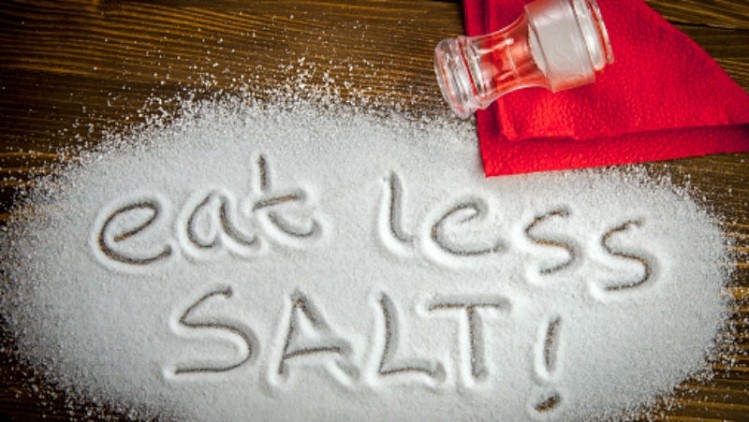

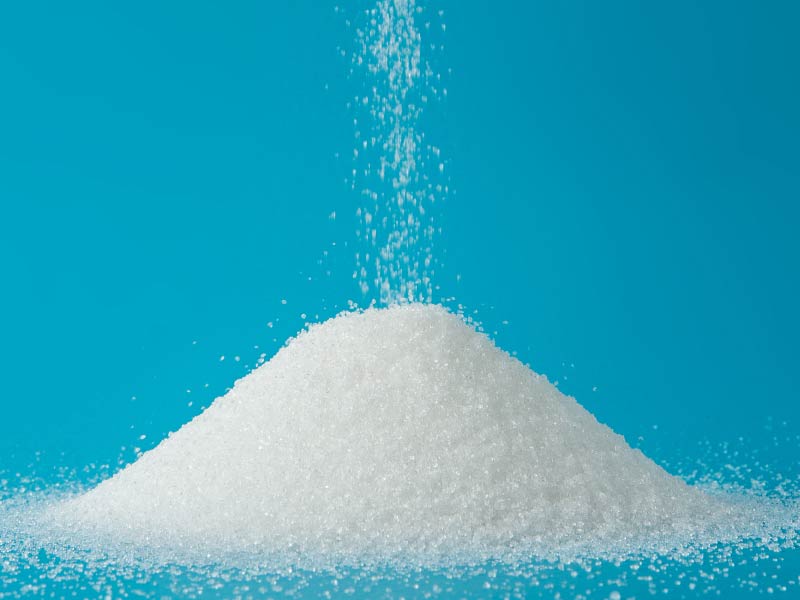
/sodium-sodium-or-salt-sodium-functions-sodium-and-diet-5085108-FINAL-076ea5c846ec462980c8c5dfda7ddfb6.jpg)





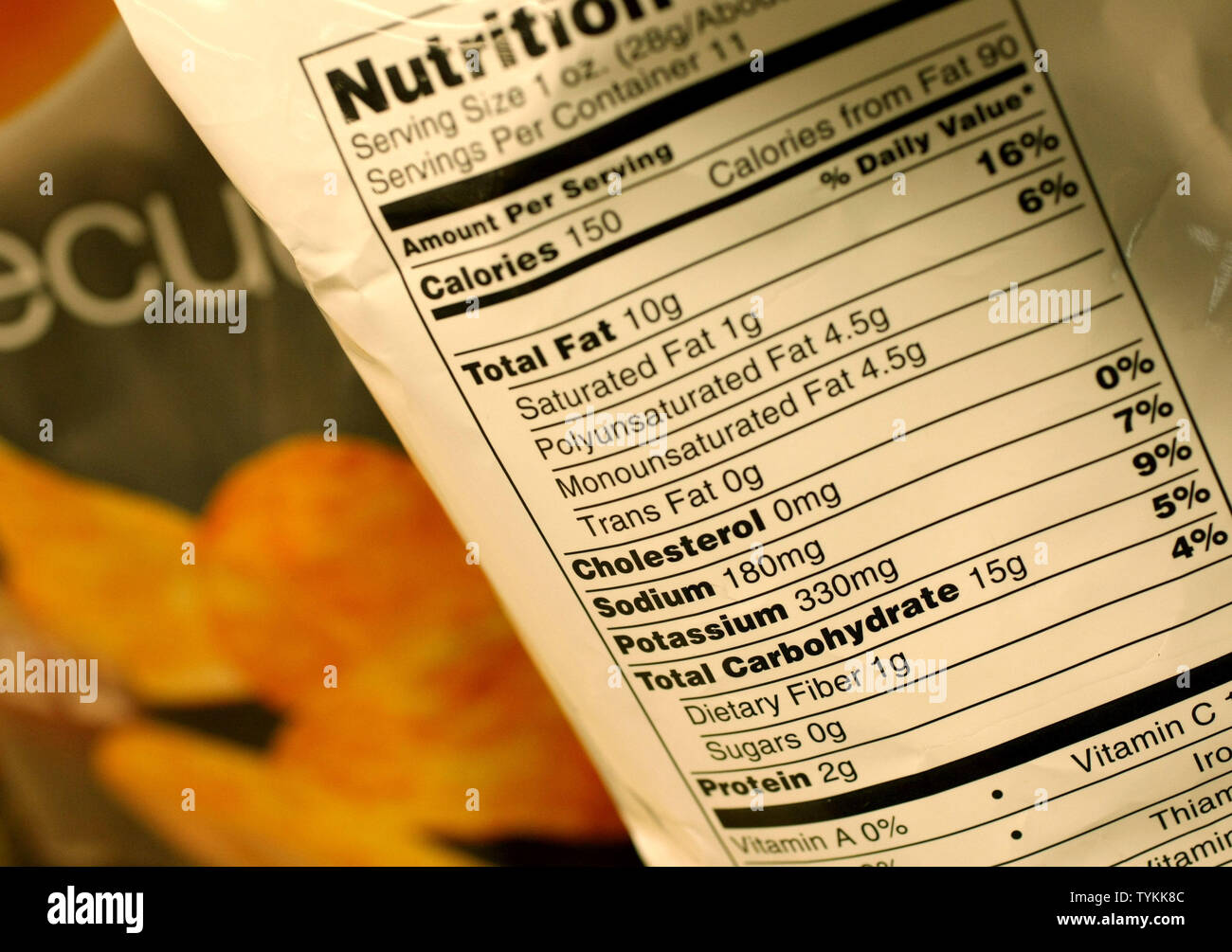


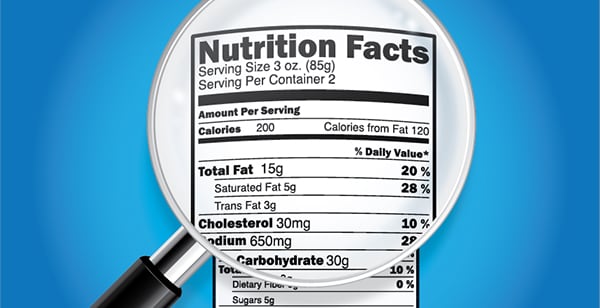
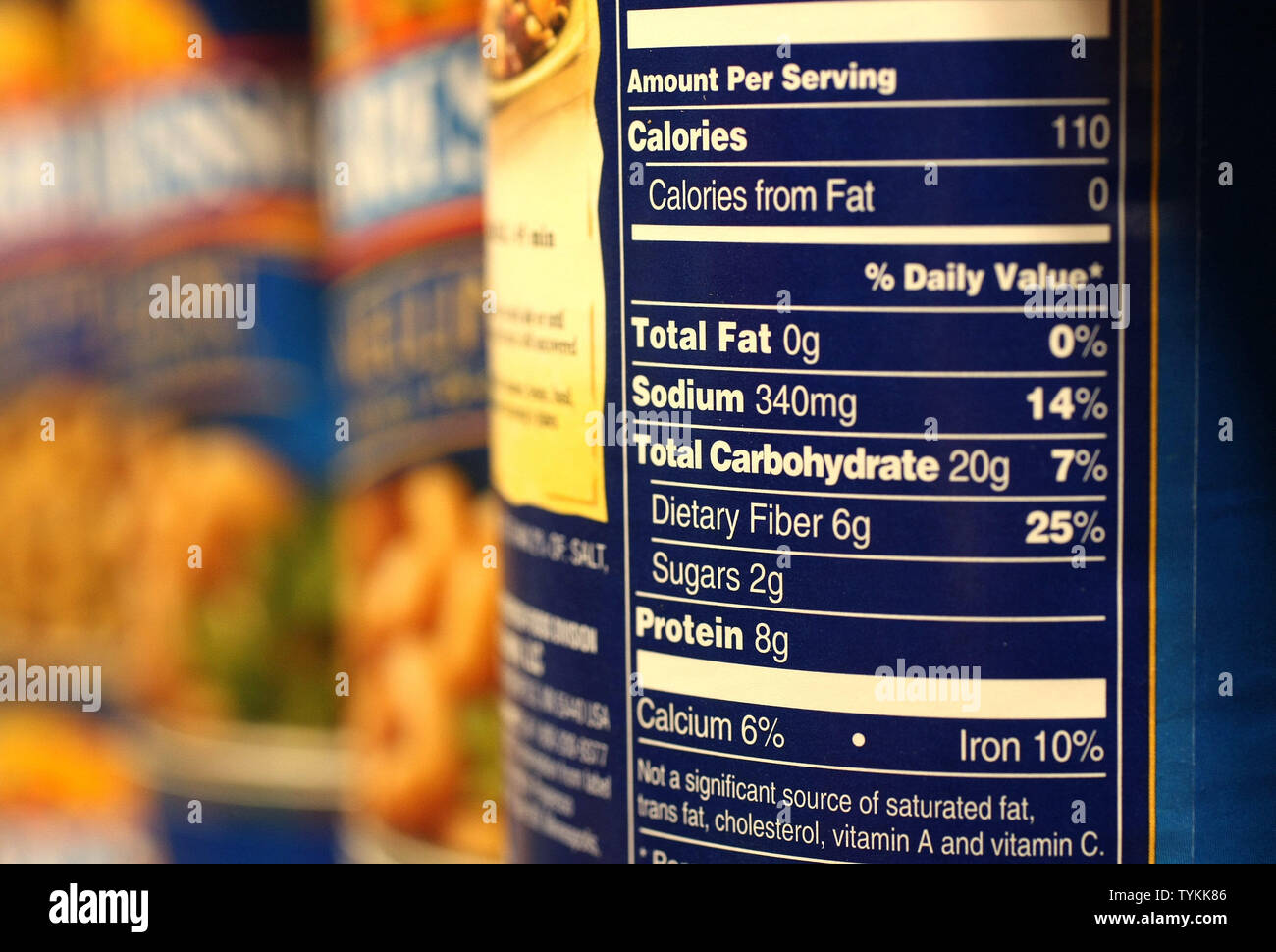

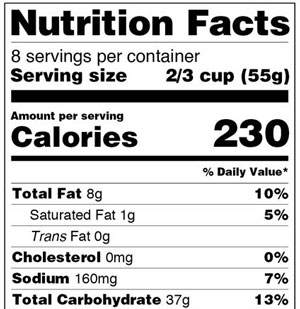

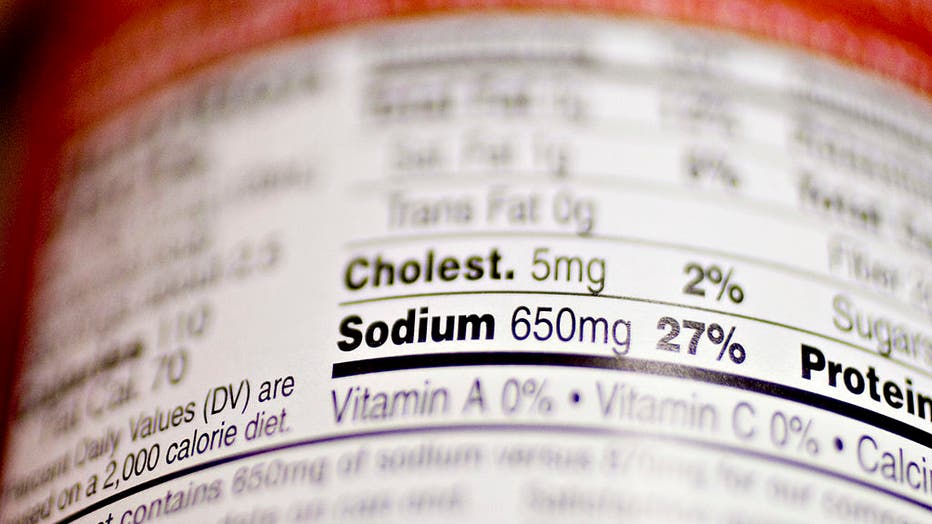

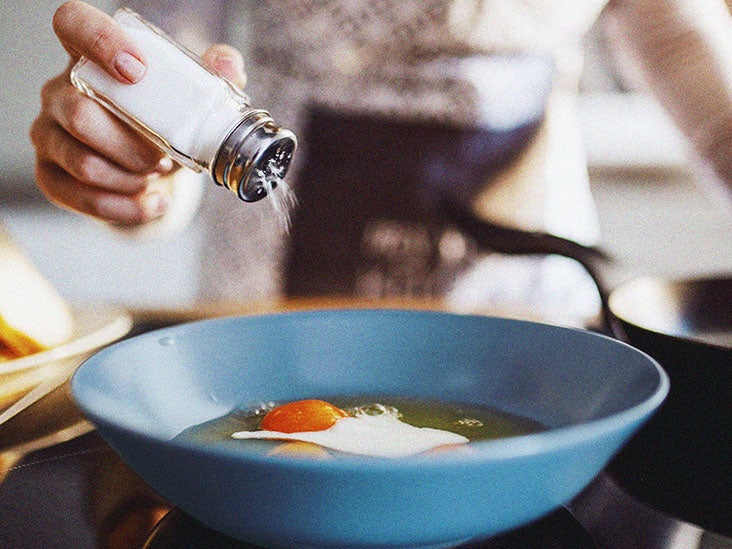
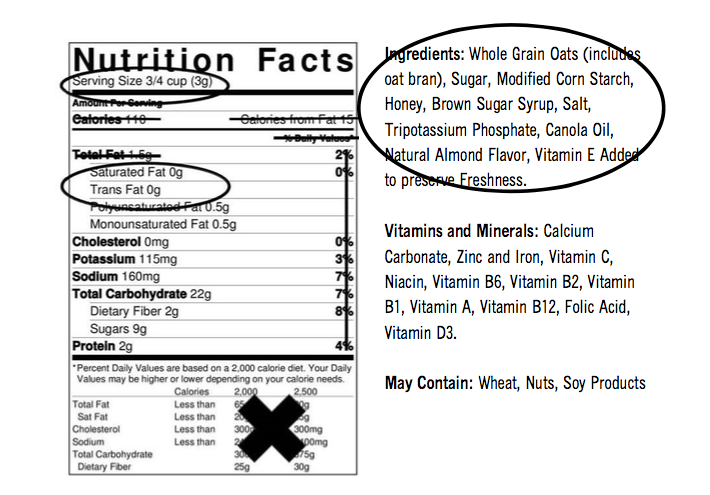
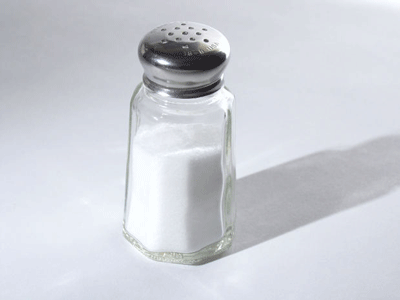

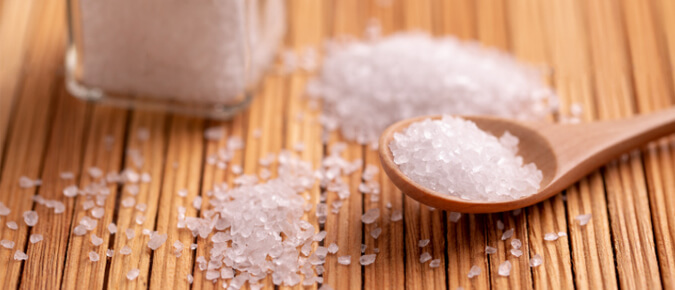



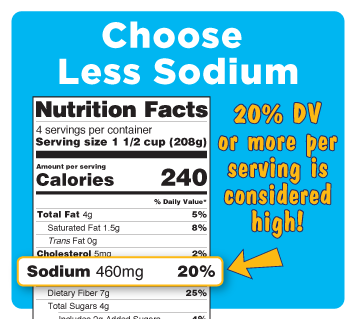
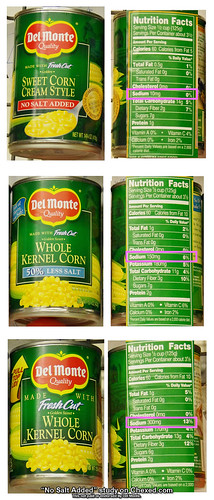
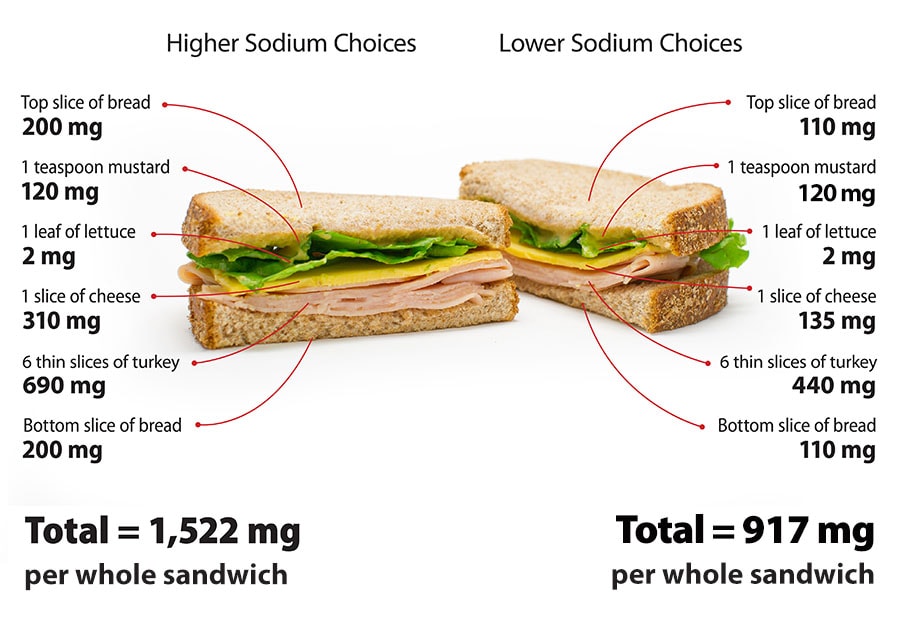
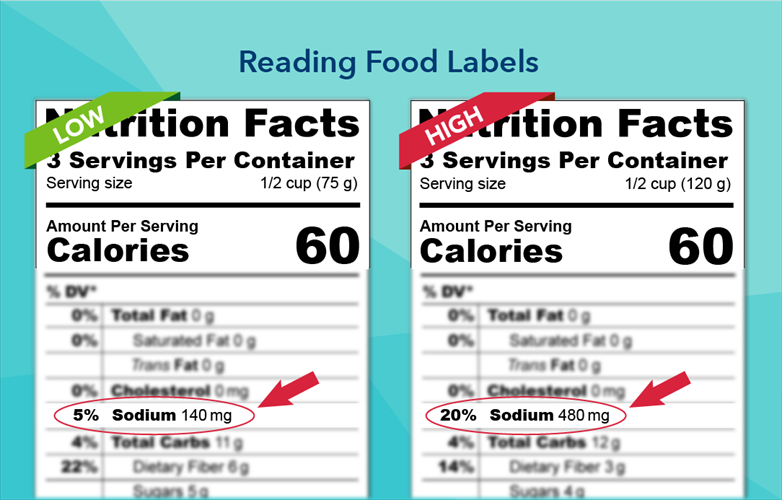
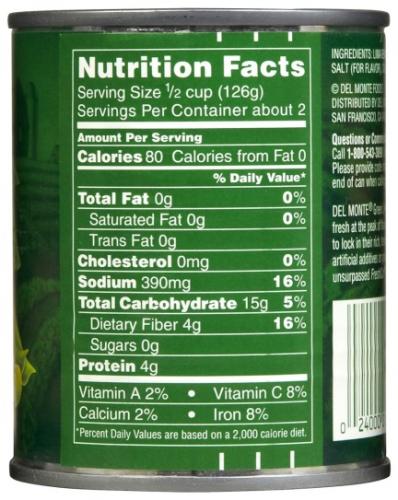



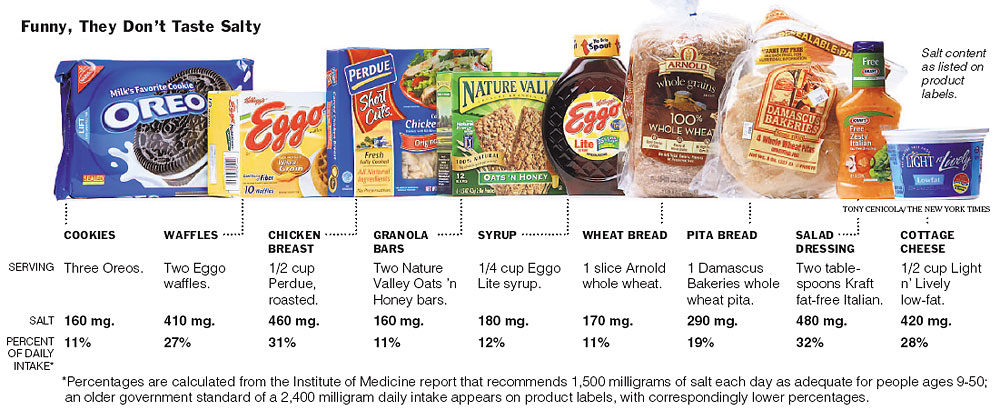
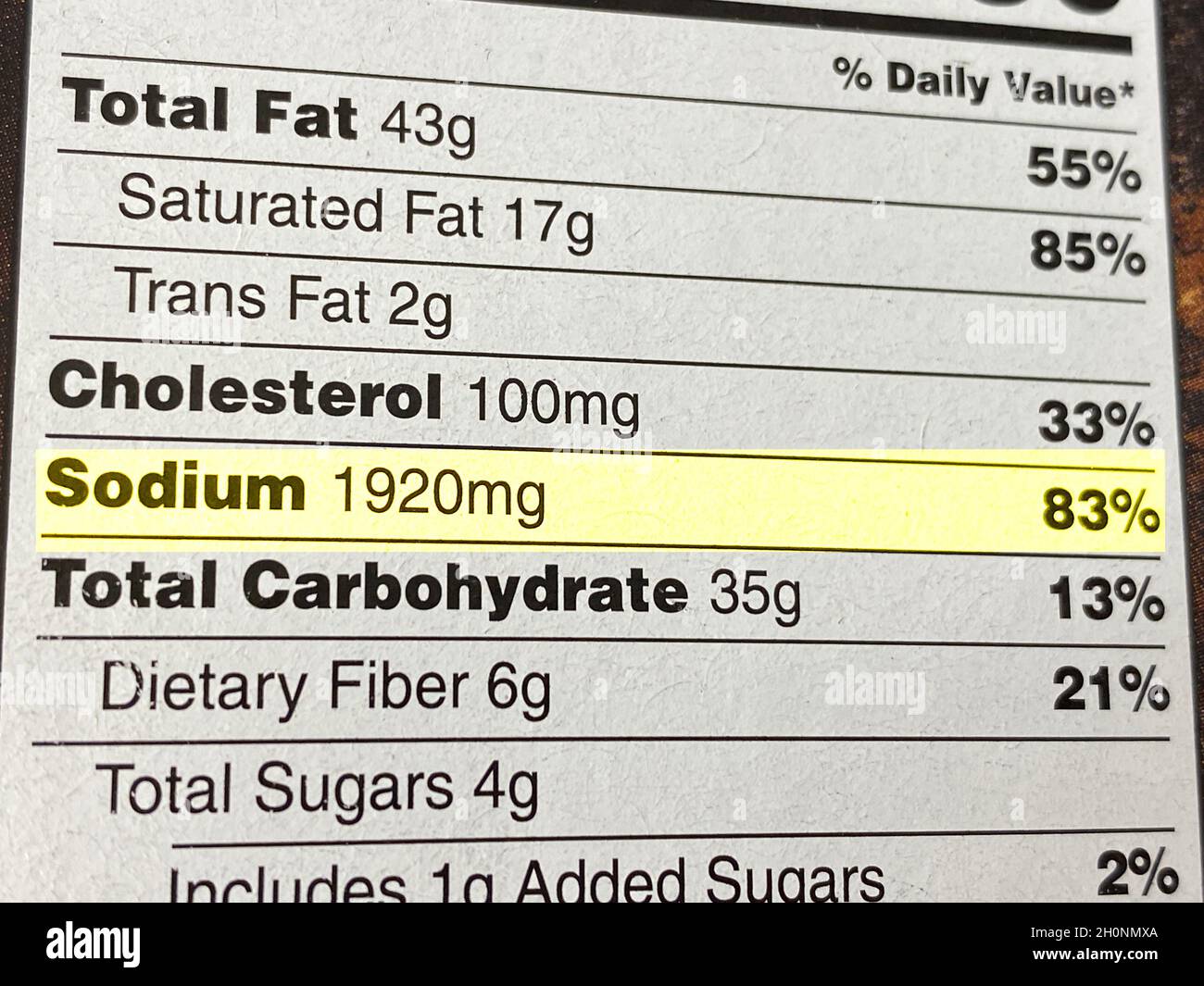
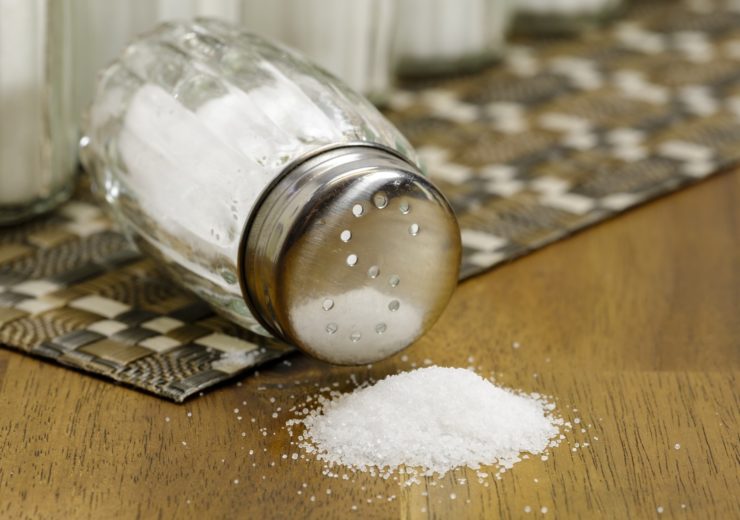




Post a Comment for "45 is sodium salt on food labels"